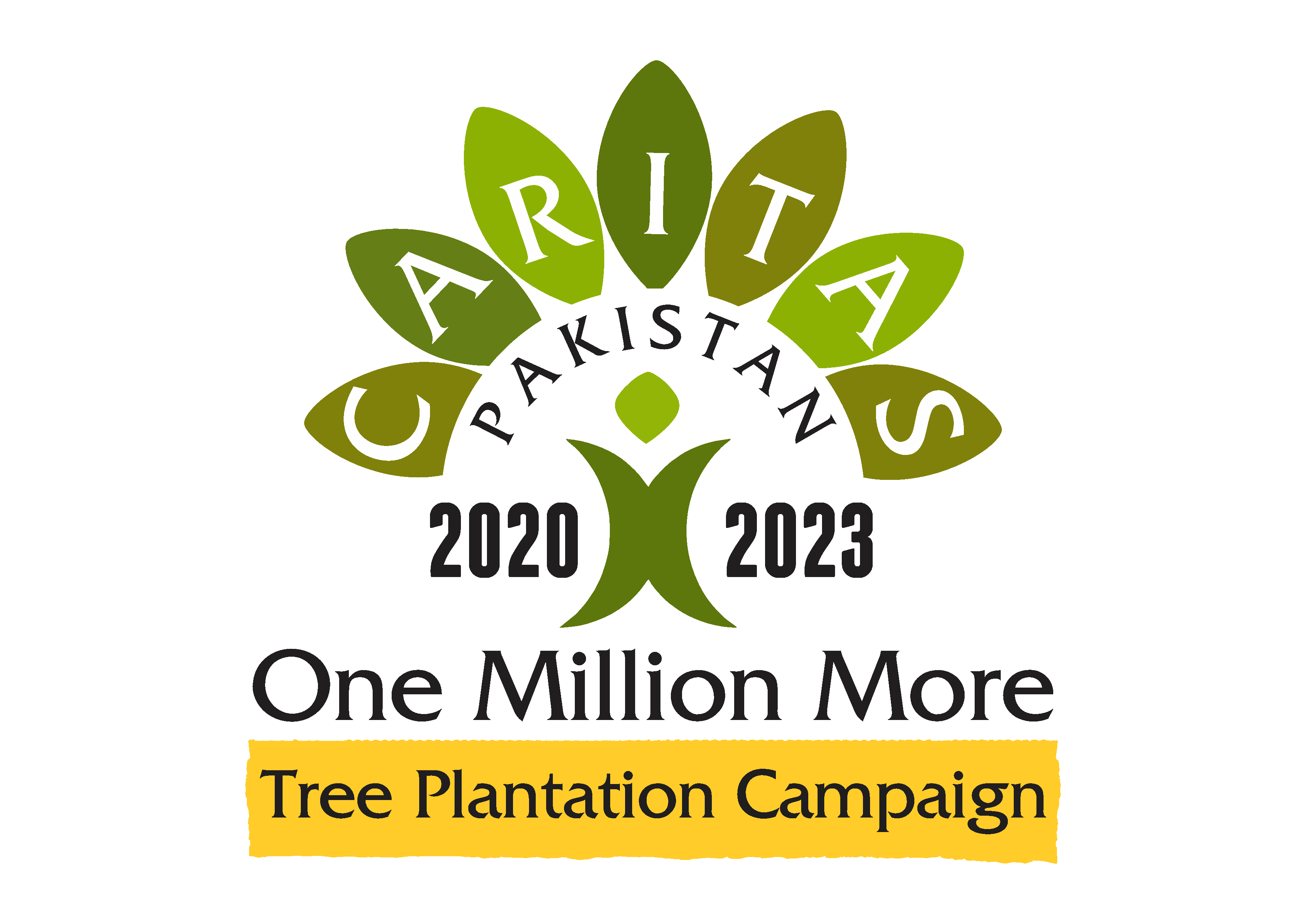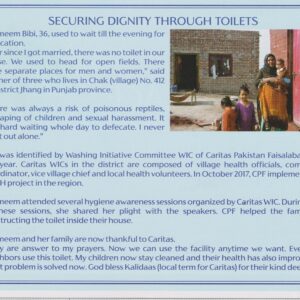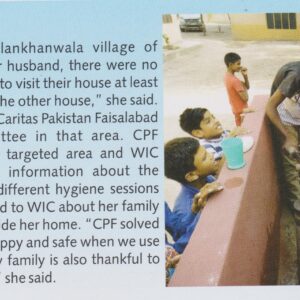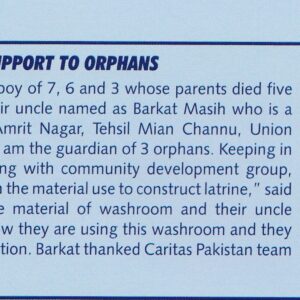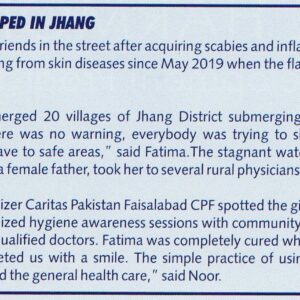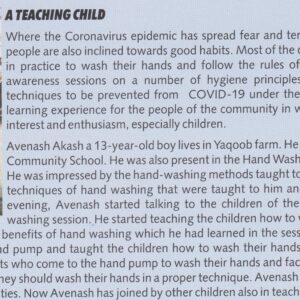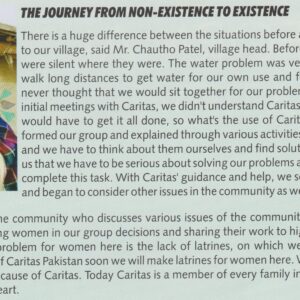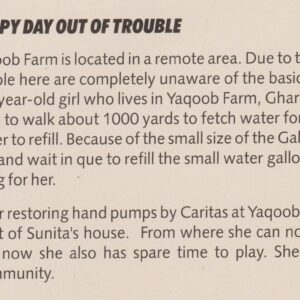No products in the cart.
Sharifan Bibi – from Hanjali Mehtabpur, Pasrur
I thank Caritas Pakistan form organizing a seminar in our areas to on the importance of handwashing as a key habit to secure life from diseases, especially in the context of the COVID-19 pandemic. Prior to understanding the significance of handwashing, I used to suffer from frequent bouts of illnesses, particularly waterborne diseases such as cholera and typhoid. However, after attending a session on WASH hygiene practices, I learned the importance of handwashing and began incorporating it into my daily routine. With the outbreak of COVID-19, handwashing has become more important than ever to prevent the spread of the virus. I make sure to wash my hands thoroughly with soap and water before eating, after using the restroom, and after coming in contact with potentially contaminated surfaces. As a result, I have noticed a significant reduction in the number of illnesses I contract, and my overall health and wellbeing have improved. I urge everyone to make handwashing a regular habit to protect themselves and their loved ones from COVID-19 and other diseases, and lead a healthier life.
